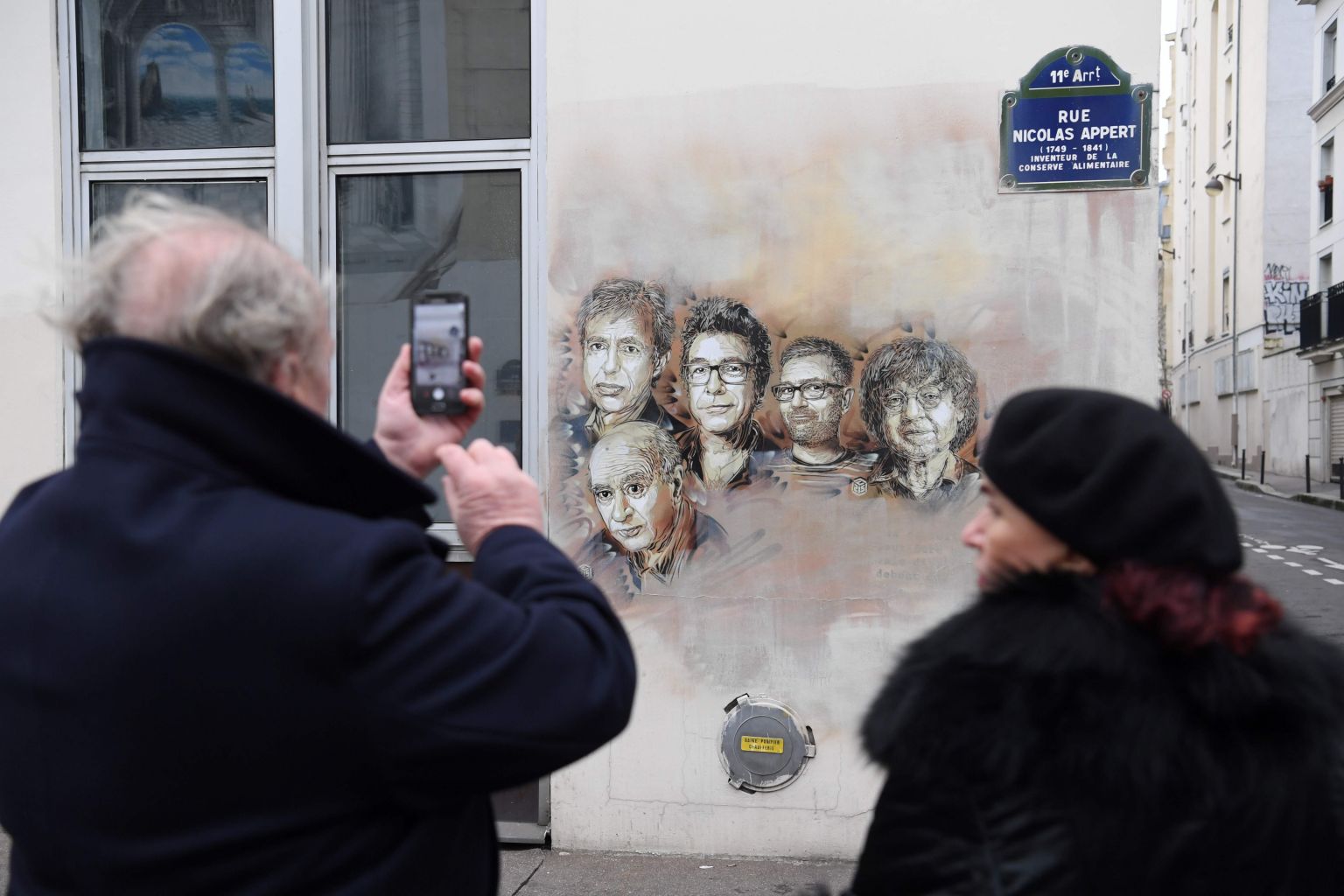Coronavirus: France's lockdown delays Charlie Hebdo attack trial
Sign up now: Get ST's newsletters delivered to your inbox

In a 2018 picture, a man photographs a portrait of late Charlie Hebdo staff (from left) Bernard Maris, Georges Wolinski and Bernard Verlhac (aka Tignous), Stephane Charbonnier (aka Charb) and Jean Cabut (aka Cabu) near the magazine's offices.
PHOTO: AFP
PARIS (AFP) - The trial of 14 people accused of helping the militant gunmen who attacked the Charlie Hebdo newspaper and other Paris targets in January 2015 has been postponed because of France's coronavirus lockdown, prosecutors said on Wednesday (March 25).
The presiding judge for the trial, originally set to open on May 4, said the strict home confinement rules made it impossible to bring together "all the parties, witnesses and experts under the necessary sanitary conditions," according to a court order seen by AFP.
No new date has been set, although the national anti-terrorism prosector's office said it would probably be pushed back until next autumn.
Seventeen people were killed over three days in and around Paris in the January 2015 attacks, beginning with the massacre of 12 people at the offices of the satirical weekly Charlie Hebdo by Cherif and Said Kouachi on Jan 7.
Over the following two days, a third gunman, Amedy Coulibaly, shot dead a young policewoman before killing four people at a Jewish supermarket.
All three gunmen, who had claimed allegiance to militant groups, were killed by police.
The 14 accused are suspected of having provided logistical aid to the attackers.
Eleven of the suspects are in detention, but three will be tried in absentia, including Hayat Boumedienne, Coulibaly's girlfriend, who authorities say left for the Iraq-Syria region during the attacks.
Also on the run are brothers Mohamed and Mehdi Belhoucine, who also fled the country just before the attacks.
Unconfirmed reports have said all three were killed during the fierce bombing campaigns by coalition forces to defeat Islamic State in Iraq and Syria (ISIS) militants in their so-called Syrian "caliphate."
Prosecutors said earlier this month that the trial will be filmed - normally forbidden in France, but allowed in cases deemed essential for the country's judicial archives.
The Charlie Hebdo massacre sparked a series of extremist attacks in France, including "lone wolf" killings by people said to be inspired by the ISIS group, that have since claimed more than 250 lives.


